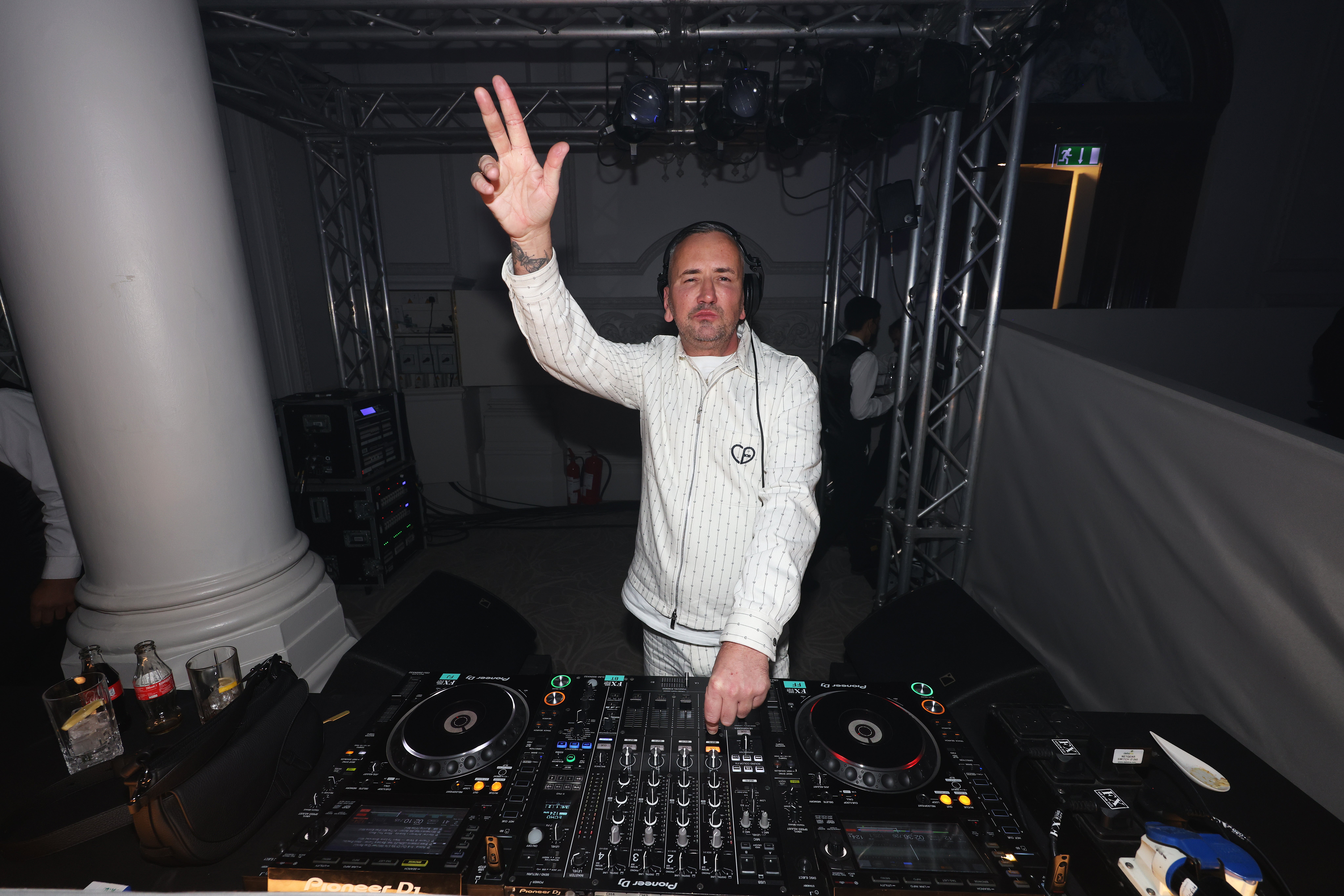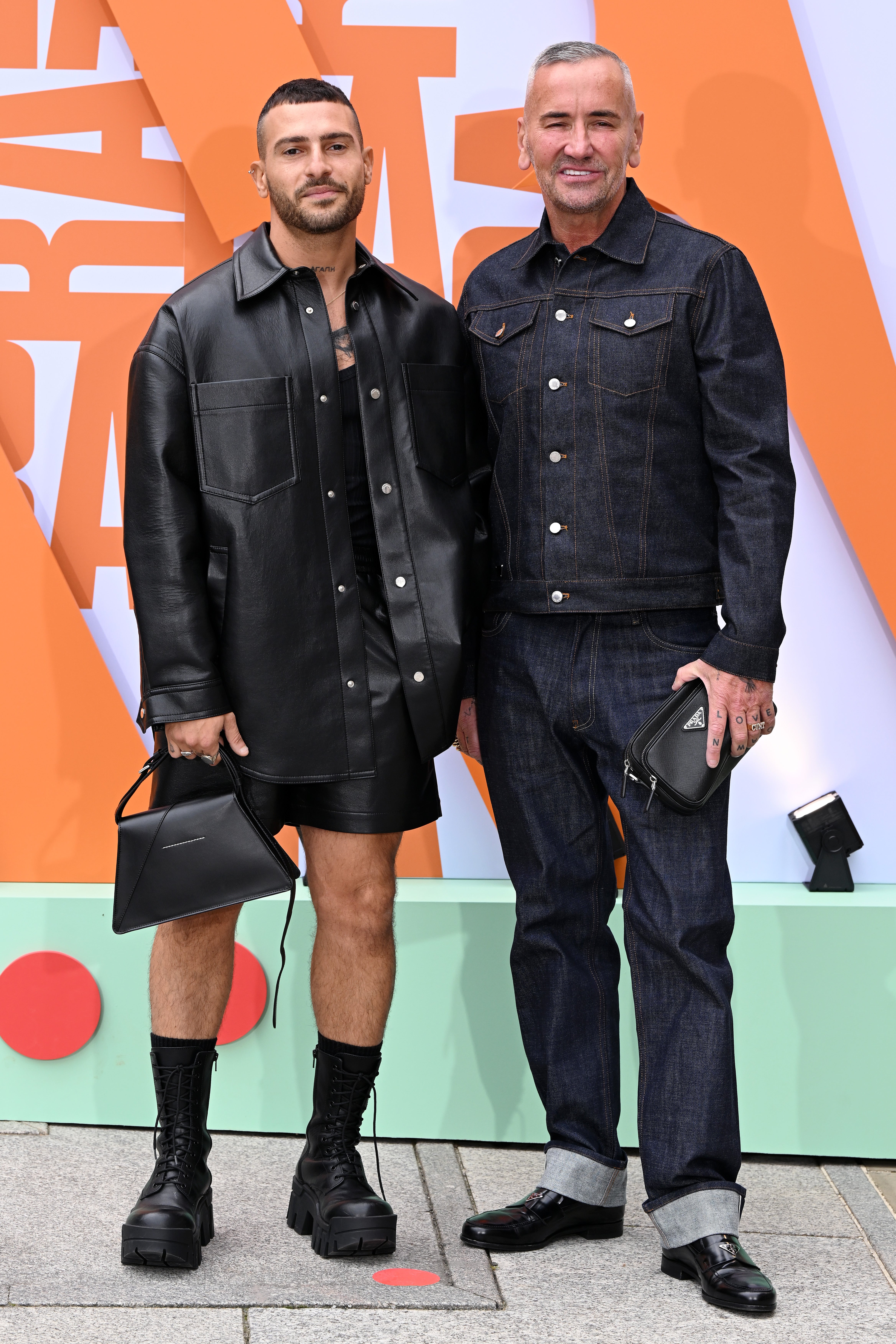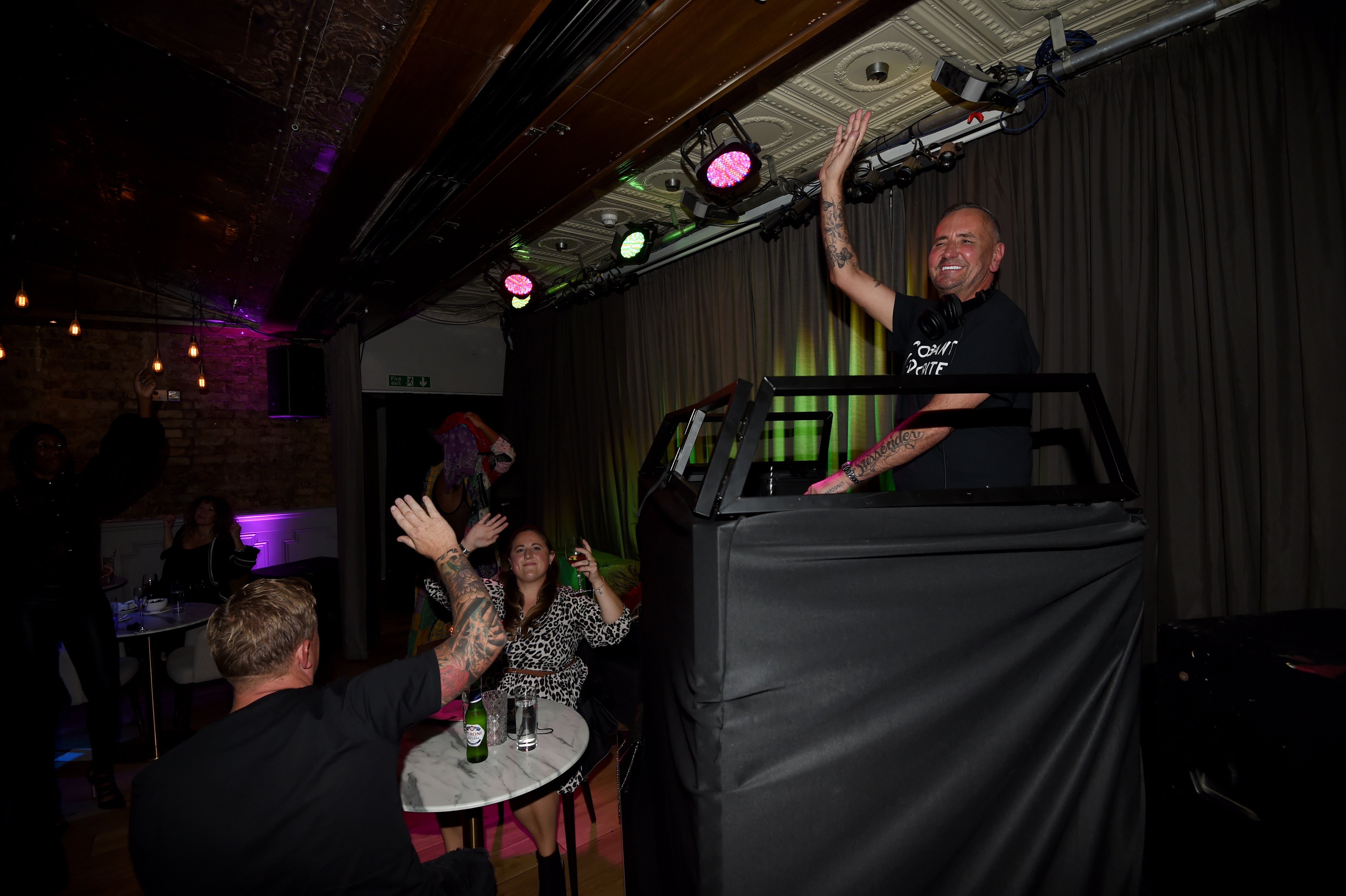Generation X are not entitled like boomers or the millennials and we know how to party
After making his name in the Nineties, DJ Fat Tony is back, sober but more ready to party than ever. It is, he tells Stephen Armstrong, a lost art and one that his generation has a duty to teach the next because it might just save the world
.jpg)
Fat Tony is looking – well, slim. And healthy. The legendarily hedonistic DJ who lit up clubs from Ibiza to New York to King’s Cross and soundtracked Generation X’s Nineties-Noughties party decade is now proudly 18 years sober, recently married, exercising regularly and, sitting in his conservatory in his Pimlico home, full of opinions.
It is a small miracle that he’s made it. In 2007, he nearly didn’t. He’d got to the point where he wasn’t living, he was surviving. He was homeless, staying at his boyfriend’s house, taking an inordinate amount of drugs and getting kicked out every week. He had one tooth left, he was so skinny you could clasp your hands around his waist and he had HIV.
“I was on death’s door, annihilated spiritually, physically and mentally,” he recalls. “I used to go to The Cross [club in London], play my set, get my money, go to my dealer and that was my cycle. One night, my boyfriend came looking for me and instead of the usual shouting, he put his hand on my shoulder and said, ‘What happened to you?’ I looked at him and started crying. Three days later, I went to my GP and said I’ve got a drug problem. He said he'd been waiting a long time for me to say that. Off I went to a drug centre in City Road, then rehab in Bournemouth for six months.”
It took him a year to get back to the decks, but he’s working harder now than ever before. He’s dropping a new EP, Hard Camp, which combines a full scoop of retro vibes – echoing classic disco, 90s house – with his social media cheekiness.
The first track, “Big Things Coming”, has Tony mimicking DJs posting on social media – “to make themselves sound important.” The track opens with him sounding super excited – “Oh my god guys, I had the best meeting of my life today. I’m so gassed. Honestly, my life’s about to change. Big things coming.” It’s a wicked track in every sense of the word.
Meanwhile, his day rave is in the middle of its summer tour – the Full Fat Fest – and he’s finally settling down at 58 years old, having recently married 32-year-old creative director Stavros Agapiou. The wedding was at the old Limelight Club on Tottenham Court Road, the site of his youthful misadventures and home to club nights hosted by friends lost to the AIDs epidemic. He had confetti cannons, Greek dancing and Boy George as his best man.
“It was a magical thing,” he nods, still slightly moved. “George said, in the service, that I really wanted to be loved all along. This is true. And he added…” he pauses, catching his breath. “That I have always been loved, and I just didn’t accept it. I couldn’t accept anyone praising me. I couldn’t take it on because I hated myself so much.”
His childhood was interrupted brutally, he explains, recalling events he’d kept hidden until he set about writing his memoir, I Don’t Do Requests. Raised on a council estate in Battersea, he was abused for four years by a man who travelled round local youth clubs showing movies.
His nickname, Fat Tony, comes from that time, he explains, when he fattened himself up to appear less attractive to the predator. Then, aged 14, he discovered London’s gay scene, hung out at now legendary nights like Taboo and Blitz hosted by the likes of Leigh Bowery and Steve Strange, was adopted by Boy George, given his first line of cocaine by Freddie Mercury and ended up DJing when he was 16 at London’s Wag club and became the musical director of the Limelight at just 19.

Was it all amazing? He gives a wry smile. “These days, everyone says ‘Oh my God, have you been to Berghain?’ in the same way the media used to talk about Taboo,” he explains. “These are myths. When you go, you’re always disappointed. Taboo was quite small, maybe 20 or 30 people, for the first few months before the media started writing about it. I think those clubs are only famous because all the people who organised them died young, of heroin or AIDs. James Dean, Marilyn Monroe and Taboo have that in common.”
He was already jetting to New York to perform, then when acid house hit, his career exploded. He was hanging out with superstars, flying on Concorde and it all got a bit too much. “I didn't understand the level I was at,” he says eventually. “My best friends were the biggest pop stars on the planet, everyone from George Michael to Madonna. I didn’t understand the level of being in London one week, New York the next. I always felt in the shadow of my pop star mates.”
Even though the hedonism of the 1990s nearly killed him, he still values the decade. “It was a mass revolution with dance music and new drugs that made people love each other,” he explains. “When acid house really started, we used to say what’s the difference between a straight guy and a gay guy? Two grams of coke and four Es. I slept with half the ICF [West Ham’s notorious football hooligan firm] around then, because all the gangsters wanted to be a part of something.”

Thirty-five years later, he believes, we’re sliding back to darker times with rising homophobia, attacks and a world at war. He was attacked in his DJ booth last year whilst playing in Margate by men shouting homophobic abuse. He shudders to remember it.
“We need some form of revolution, whether it be dance music, taking over fields again, and creating mass parties for 50,000 people – anything to unite the world again,” he says earnestly.
“We had movements then, now we just have fear. The whole world is people who are pro this, pro that, anti this, anti that, everyone’s at each other’s throats. Covid was the worst example of that, but you can still find something beautiful even in the darkest times.”
And he did. After years playing fashion parties with friends Kate Moss and Naomi Campbell, he was sitting at home releasing alternating acerbic and comforting memes on Instagram when he had an idea.
We need some form of revolution, whether it be dance music, taking over fields again, and creating mass parties for 50,000 people – anything to unite the world again
“I started DJing Saturday afternoons in a shop in Notting Hill Gate – the police couldn’t arrest me because I was working in a shop and there were no lockdown rules about shop music,” he cackles happily. “People would come in, do their shopping, dance a bit, leave, and it went on.”
From that, he started Full Fat – a safe day rave that’s been going for five years this summer. “It’s remarkable, because it started off with my new demographic over lockdown – women of a certain age. I love that demographic. They always come to party.
“I stopped doing fashion parties because I didn't want to DJ to people eating crudites and chatting shit. The day raves were almost 95 per cent women, we were playing music like ‘Free from Desire’ and making sure that people could come at midday, leave at 6pm and be home with their kids.

“It sells out every time. We’re touring it to two-and-a-half thousand people at each gig. It’s just pure, the love that’s on that dancefloor. Now it’s moved on to their kids, which is even better.”
That’s the Generation X way, he believes – a slightly weird generation of opinionated grafters. “We know how to scam and we’re not entitled like the boomers or the millennials,” he laughs. “We just go and get what we want. What I love most about these big old day raves is you've got 2,000 Generation X people dancing and they’re loving it but they all think they know how to DJ better than you. That’s the magic of it.”
He does admit that age is creeping up on him, although his HIV count has been undetectable – so low a lab can’t count it and he can’t pass it on – for 23 years. He’s taking more pills now to feel normal than he used to when getting off his head. There are vitamins, NAD, lion’s mane and mushrooms – “not magic or a hallucinogenic” – plus the gym three or four times a week with a PT.
“For me, it's really, really important to exercise and to actually stretch and do all of those things, just to keep myself happy and moving,” he smiles. “That’s what’s important. Keep moving. Whenever I get asked what was your best ever gig? What’s your favourite club? I always say, I’ve never been to it, and it hasn’t happened yet. The best is yet to come.”
‘Big Things Coming’ and ‘Right and Exact’ are available to stream; the EP Hard Camp is out 4 July. Find out more about Fat Tony’s Full Fat daytime rave here
Join our commenting forum
Join thought-provoking conversations, follow other Independent readers and see their replies
Comments


Bookmark popover
Removed from bookmarks